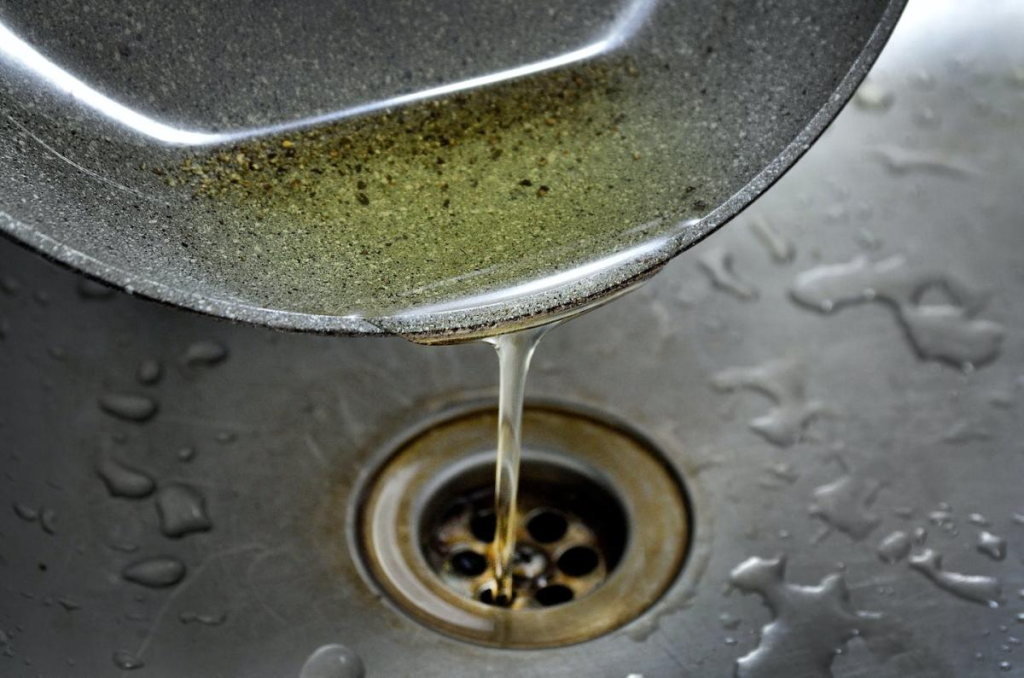Cooking oil might seem harmless when it’s sizzling in your pan, but once you’re done with it, improper disposal can wreak havoc on your plumbing and the environment. Here’s what you need to know to dispose of it responsibly.

Why You Should Never Pour Oil Down the Drain
- Clogs Your Pipes
When hot oil cools, it solidifies inside your pipes, sticking to the walls like glue. Over time, this buildup restricts water flow, leading to slow drains and costly plumbing repairs. - Creates “Fatbergs” in Sewers
Oil doesn’t just clog your home’s pipes—it mixes with grease, wipes, and other waste in city sewers, forming massive, rock-like fatbergs. These blockages can cause sewage backups, flooding streets, and even damaging infrastructure. - Pollutes Waterways & Harms Wildlife
Oil that escapes into rivers, lakes, or oceans forms a toxic film on the water’s surface, suffocating fish and coating birds’ feathers, making it impossible for them to stay warm or float. - Costs You (and Your City) Money
Clogged pipes mean expensive plumber visits. For cities, fatberg removal can cost millions—taxpayer money that could be better spent elsewhere.

Safe & Eco-Friendly Ways to Dispose of Cooking Oil
✅ Reuse It (If It’s Still Clean)
- Strain used oil through a coffee filter into a clean jar.
- Store in the fridge and reuse for frying (up to 2-3 times).
✅ Throw It Away Properly
- Let oil cool completely.
- Pour into a sealed container (old jar, milk carton, or takeout box).
- Toss in the trash—never down the drain!
Nest Page→→
Pages: 1 2